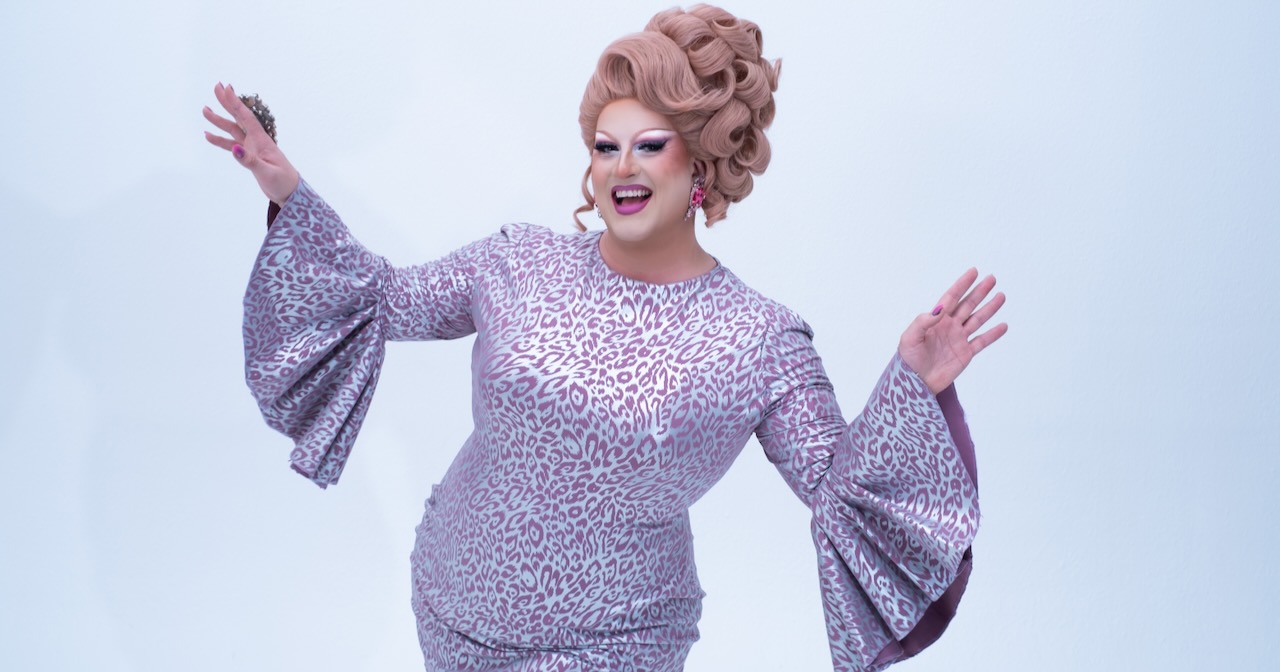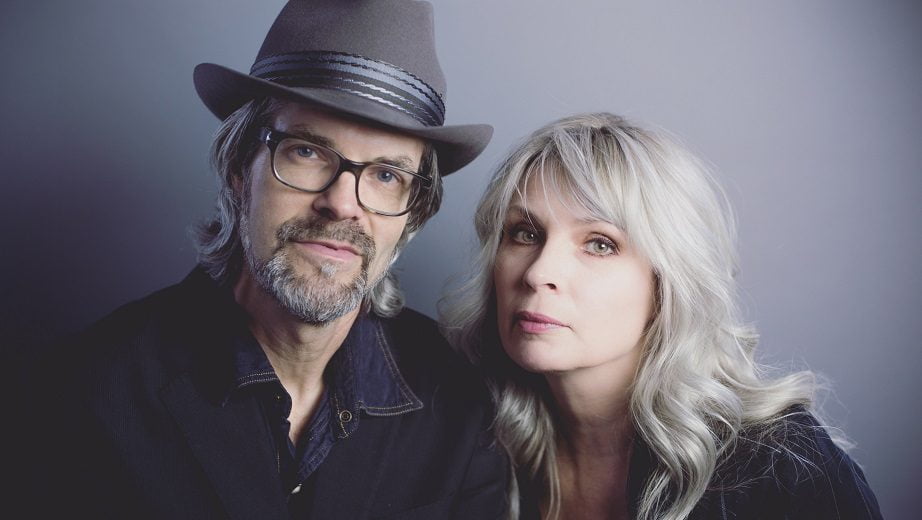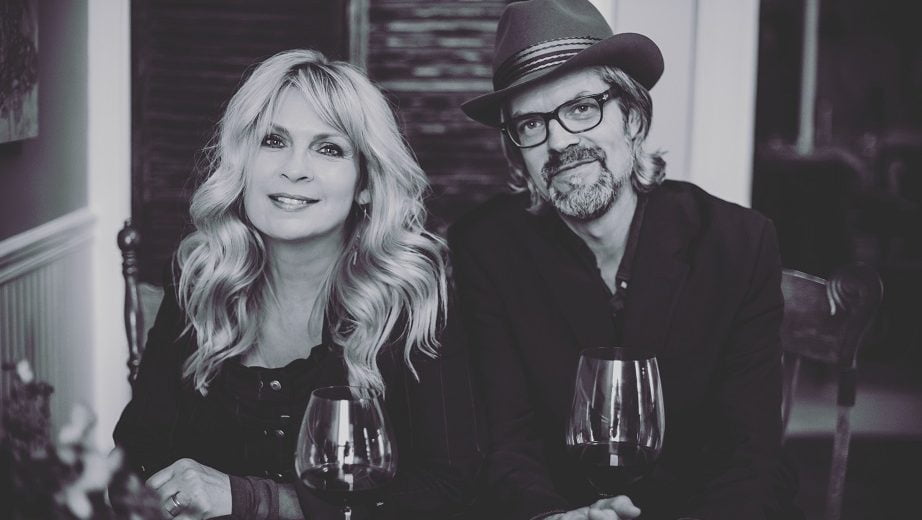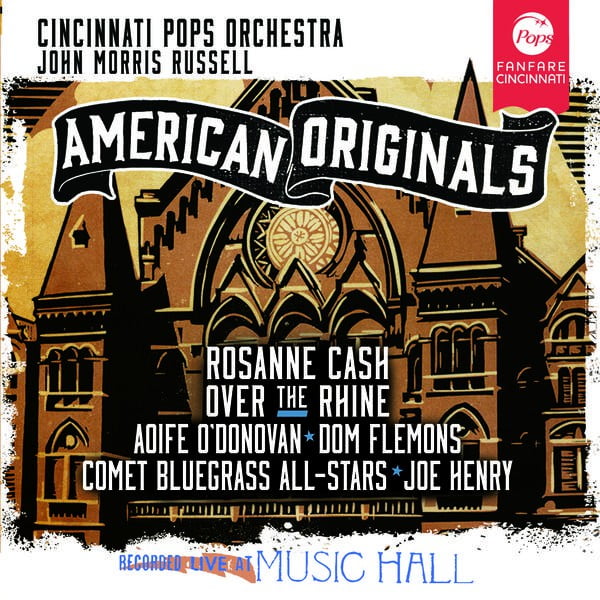Welcome to the playlist you probably didn’t have on your bingo card this year: a series of songs spanning from gospel music to ’90s folk to contemporary singer-songwriters, all curated by a drag queen with a number one Christian album under her belt. I’m Flamy Grant, and I’m honored that BGS invited me to share the songs that healed my very gay, very religious trauma.
My first record was called Bible Belt Baby, so I know a thing or two about growing up in the shadow of a religious fervor that wants boys to be boys, girls to be girls, and gays to keep it in the closet. Here are a few of the songs that helped me not only to come out, but to let this little light of mine keep shining in the faces of a lot of people who’d prefer it were hidden under a bushel. Not today, gatekeepers. Not today. – Flamy Grant
“If You Ever Leave” – Flamy Grant
Oh, hello darling. I’m a drag queen with wares to sell. Of course I’m starting off this playlist with my new single! It is, at least, very much on topic. This ballad from my forthcoming record, CHURCH, pretty much speaks for itself, but I will offer this one, brief, supplemental thought: if there’s a God demanding your worship, but as you get to know him you discover that you are capable of loving people better and more completely than he is… don’t worship that God. Girl… it’s a trap.
“Undamned” – Over the Rhine
Outside of Amy Grant, no artist has had as much of an impact on me as Ohio-based duo Over the Rhine. Karin and Linford have saved my life ten times over. “I’m not your little lost lamb, God might still get my world undamned.” This song somehow manages to be both defiant (personally, my favorite posture) and repentant. Brazenly owning your apostasy while unabashedly surrendering to a cosmic, supernatural love at the same time? Slay. (Bonus: Lucinda Williams delivers an absolutely divine featured vocal. Undamn me anyday, Over the Rhine.)
“Wrap My Arms Around Your Name” – Sarah Masen
When I was growing up, I was only allowed to listen to Christian music. Sarah Masen was always a bit of a square peg in a round Christian music industry hole, and one of the first songwriters I encountered who addressed the conflict, doubt, and dissonance inherent to the faith everyone else around her was putting such a sheen on.
From the first line, “Mystery’s walking on my head again,” I was hooked on this song about yearning to feel deeply spiritually connected. “Does hallelujah wear the same old face?” Excellent existential question, Sarah. Thanks for giving my teenage angst a place to freely ask it.
“Amy’s Song” – Matt Simons
Back in 2018, I was a worship leader for a queer-affirming church in San Diego and we decided for Pride month that year that we would put on a worship service that was 100% produced, led, and delivered by our queer members. I even wanted to make sure every song we sang had been written (or co-written, in this case) by a card-carrying member of the alphabet mafia. I found “Amy’s Song” and loved the music and the message: “Does your God really give a damn” about who I love?
The twist for me was in discovering that one of the song’s co-writers, and its namesake, Ames, and I had played a show together years before in when we were both closeted and going by different stage names. I led “Amy’s Song” at our church that Sunday and Ames and I have since reconnected online. We’ve even been talking about writing something together one of these days. “Amy’s Song 2: The Ballad of Flamy,” perhaps? (Pro tip: after you listen, go watch the music video and making-of mini-doc, both on Matt Simons’ YouTube page. Bring Kleenex.)
“breathe again” – Joy Oladokun
Honestly, it was hard to pick just one song from Joy Oladokun’s extensive repertoire of musical remedies for the religiously wronged. She is both plainspoken and poignant, capturing the heartbreak so many queer people experience when we grow up in families and cultures that suffocate us in a shame-inducing, manipulative desecration of divine love. Joy’s voice in this song just melts me, and it’s a breath of fresh air for the closeted kid I used to be when she uses it to sing, “If I hold my breath until I’m honest, will I ever breathe again?”
“Someday You’ll Wake Up Okay” – Spencer LaJoye
This is inner child work of the highest order and nobody translates the specific into the universal with such clarity as my friend Spencer. “You won’t hear me, but I’ll think it from the future.” Oof. Also, who knew healing your inner child could be such a bop?
“Holy Sunlight” – Steven Delopoulos
Something about the music of Stephen Delopoulos, who fronted the ’90s Christian band Burlap to Cashmere, just feels reverent. It’s like high-church Paul Simon. This song reminds me that even when we’re leaving, we’re really not. “Pack my luggage, fake a smile/ Don’t cry, we’re all connected like the ocean sea.”
“Faith” – Semler
No one is more emblematic of a reckoning for the Christian music industry to me than my pal Semler, who was the first out queer artist to have a number one Christian record a couple years back. In “Faith,” they are eye-level with the abusers of power in the church they’re confronting. “Don’t pretend I’m not your body.” GOOSEBUMPS, HUN. And it’s a song that somehow doubles as a powerful worship anthem of sorts for the disenfranchised? We’re here, we’re queer, and we still have faith, dear. I live.
“Shiloh” – Audrey Assad
I had stopped listening to CCM by the time Audrey got her record deal with juggernaut Christian label Sparrow Records back in 2010, so I missed most of her early career. But during the pandemic, I learned about this (wildly-talented) artist that Christian media outlets were criticizing for “backsliding.” Don’t tempt me with a good time, I said. Audrey and I have become friendly on social media since then, and she’s so much more than a good time. She’s a healer. This song in particular patches up a new part of me every time I hear it. God bless the ones who leave the church but never stop providing care for souls.
“The Way You Get Found” – Story & Tune
I’m proud to say I was the first person to ever hear this excellent song, in the basement of the San Diego house I shared during pandemic with its writers, Karyn and Ben. The line that got me then still gets me today: “I bless the way you carve your name on the gate-kept inner sanctums where they said you couldn’t stay.” Absolute pros, these two, crafting an artful turn of phrase that not only perfectly fits the demanding cadence of the song, but delivers a well-placed gut punch to folks who know what it’s like to stand up to religious bullies when they say we can’t be on their playground.
“Jacob from the Bible” – Jake Wesley Rogers
This song came through my Spotify algorithm one day and stopped me in my tracks. Of course, now Jake is a world famous colorful crooner and besties with Elton John, etc., but when this song came out, I was able to reach him online and successfully petitioned him to be on my podcast. You can still listen to that conversation. We talk about this song, where it came from, what it meant to each of us, and why Jake should definitely be our first gay president. For me, it feels like a life-giving extraction from all the oppressive weight of religious expectation. “I don’t want to be held down by a heavenly man.” Makes me think of Jacob from the Bible when he defeated the angel in an all night wrestling match. (Hot!) And honey, wrestling with God? Relatable.
“Testify to Love” – Wynonna
Okay, this might be the only bonafide CCM hit in the mix. It was originally recorded by Christian supergroup Avalon and if you were anywhere near Christianity in 1997/98, this song is In. Your. Bones. Every once in a while when I’m playing to an audience of a certain age — the ones who were in youth group about the same time as me — I’ll bust this out as a cover during my set and, well, let’s just say it’s so cute to watch half the room have a dramatic That’s So Raven-style flashback. But I propose to you that at the end of the day, it’s a gay song. I mean, the opening lyric is, “All the colors of the rainbow!” It’s all about how love wins!
What really seals the deal is Wynonna Judd’s countrified cover of the song from a very special episode of Touched by an Angel. I dare you to listen and not agree that Christianity peaked in 1997 and we should frankly just ignore everything that’s come out of evangelicalism since this song ruled the airwaves.
“House of Spirits” – Allman Brown
London-based singer-songwriter Allman Brown taps right into all of our generational trauma and father wounds with this achingly gorgeous spiritual about how it feels to sit vigil by the deathbed of a parent who “damned my soul to the fires.” As someone with a damaged and deeply strained relationship with an ultra-religious father who’s still alive, this song gives me a glimpse into the journey ahead, and I find myself praying along with Allman that one day that house of spirits “will feel like home.”
“What You Heard” – Amy Grant
An Amy Grant song on this list was inevitable, but far less likely is a song from a parent who learned better communication skills by going to family therapy with her kids. But that’s exactly what we have in this, the first new song from the Queen of Christian Pop in a decade. I saw Amy perform it last year and she told the story of how group therapy with her family helped her understand that some of the ways she thought she was communicating love to her kids weren’t exactly landing that way on their ears. It’s the kind of thing most survivors of religious trauma can only dream of: a God-fearing parent gaining perspective later in life and using therapy tools to change behavior? A better relationship through effective communication? May we all be so fortunate. But even if we’re not, my favorite diva (she would never call herself that, so someone has to) has gifted us with this beautifully-written song that shows it’s possible. Amy and amen.
“May I Suggest” – Susan Werner
I’ll leave you with the best benediction that’s ever been spoken (sung) over me. I wish someone had invited me to the Susan Werner party years ago, so I’m making it my mission to bring as many plus-ones as possible now that I’m here. Actually, in a way, I’ve been here since high school, I just didn’t know it. The first time I heard this song was as a cover by Ellis Paul and Vance Gilbert back in the late ’90s, but I just assumed it was theirs. Then about a year ago, a friend sent me a track by Susan called “Our Father,” in which she expertly/hilariously reimagines the Lord’s Prayer (“Deliver us from those who think they’re you”). I was hooked and started working my way through her catalog, but it wasn’t until I saw her live at the Kerrville Folk Festival earlier this year that I learned she was the composer of this song I loved when I was 17.
When she sat down at a baby grand and soulfully set out to convince a field full of festival-goers that “this is the best part of your life,” I openly wept. It’s tempting after you escape from oppressive, high-demand religion to fall into the trap of regret for a lost youth and years of missed chances. Susan invites us to consider the other side of that coin: thanks to the trauma you’ve survived, “Inside you know what’s yours to finally set right.” The next time Susan is anywhere near you, drag yourself (yes I said DRAG) and everyone you love to the show — and hope that she sings this benediction over you, too.
Photo Credit: Sydney Valiente



